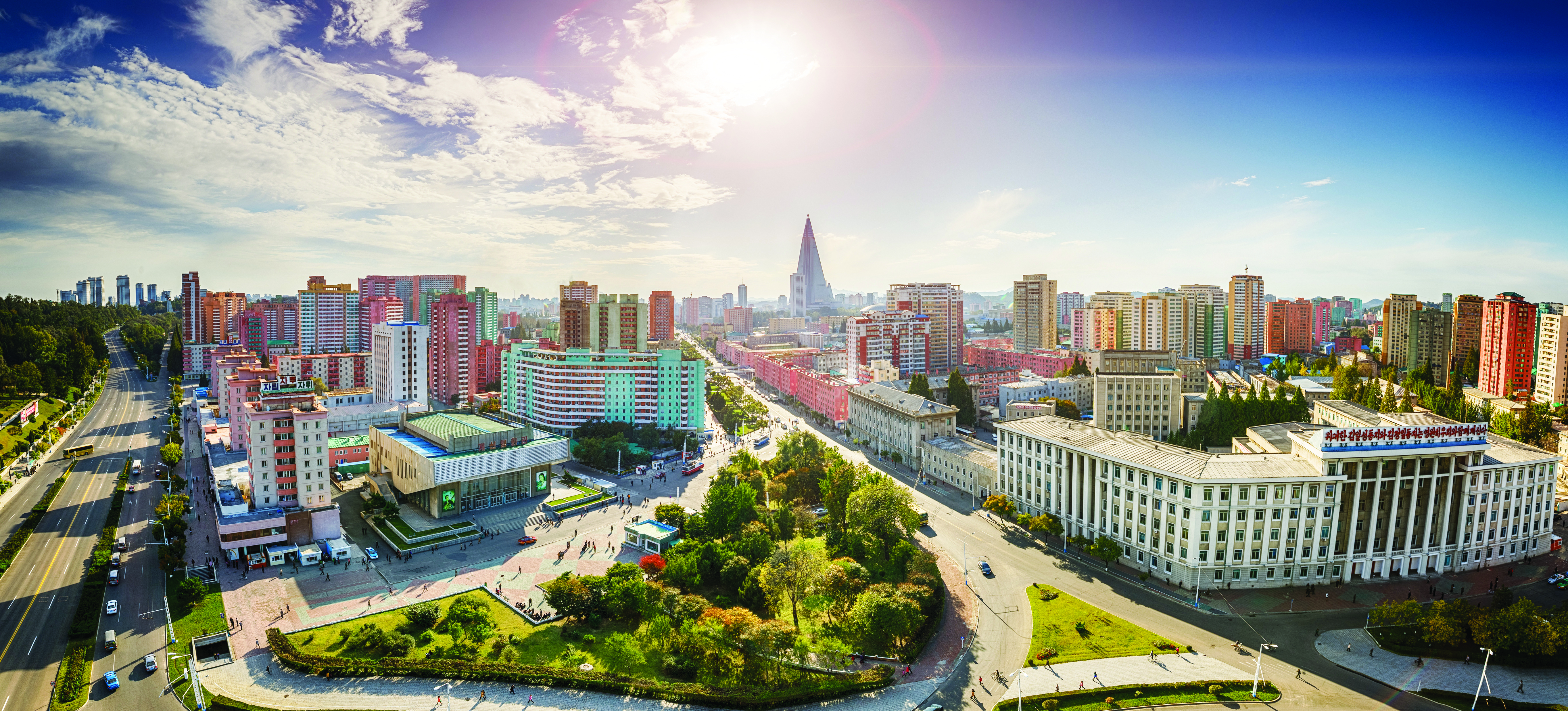
A multitude of exasperations surface when speaking about North Korea. Planning a vacation there of shock and awe. A visit to the Democratic People’s Republic of Korea (DPRK) does not materialise, at the drop of a hat. Their visa regulatory body is more intent on rejecting applications than granting. The accredited agent based in Beijing is Koryo Travels, and one needs to single window them, for visiting the Kingdom.
Trips to DPRK needs sensitivity trainings, termed as pre-trip briefings, which could span a few hours to a day. The training was all about the dos and the don’ts, and at the end, we found that there was nothing much we could do there on our own as a tourist. Breach of ethics or divergence from set rules could be devastating with a probable unending stay in North Korea.
Armed with paper stamped visas we checked in at Beijing airport. The Airlines was Air Koryo, an uneventful flight, and we landed at the spick and span Pyongyang International Airport.
The journey of discovery began. With not much of traffic, save a couple of daily flights, the lines at immigration moved fast, since they have a detailed roster of all incoming passengers.
The bottle-neck starts at customs. Laptops, hard discs, and cell phones are checked for content and we exited the customs for baggage. The entire group was then sub divided into smaller “manage-able” groups of about 25.
**media[813335]**
Transported to a hotel, which had been already sanitised as “for foreigners only”, our passports and the visa was taken away, with a verbal assurance to be returned when exiting.
Immediately the rules swung into action. We were free inside the hotel, as there were no guests apart from us, but were barred from leaving the premises. Each group had two “minders” and they hung around ubiquitously.
The television had only one channel, and that was entirely devoted to Kim Jong-un and his heroic exploits of taking the nation forward.
**media[813334]**
North Korea runs two parallel mobile phone services. One is solely for the locals, the other one for foreigners, which are rarely available. The most amusing part being, that the two services are not compatible. A local SIM cannot call a foreign SIM, and vice versa. Compounded with the fact that there was no internet, we were totally isolated from the world at large.
The next few days were going through the set tours, and it was hilarious. Heralded into a bus with tinted windows, number count every now and then, harried “minders” in perpetual stress, as if any one of us would defect from the group.
We were not allowed to interact with locals as we got off the bus, and crossed streets to visit a museum or a place of tourist interest. Some did try, but the locals walked past, with a blank stare as if they never heard us. They have an archaic metro rail system. The carriages actually look like boxes and even in the train the interaction with locals were frowned upon.
From every street corner, from every building, Kim II-sung, and Kim Jong-il, stare down at you. At the Mansudae Grand Monument, enormous bronze statues of the two past Presidents overlook the city. Right from arriving, we were told that photographs clicked would be subject to scrutiny. At random, the minders started checking the cameras for any objectionable pictures taken. The ground rules were not clearly defined, but their decision, irrevocable.
The highlight of the trip was obviously the visit to the border —The DMZ. There was excitement within us. The minders were tensed and stressed to their end.
Many a times, they repeated the number count. We were harshly instructed against trying to and make a dash across the border. Through many a check and repeated alerts, we reached DMZ.
Just a narrow road demarcates the two Koreas, and security is on premium on either side. But then the fun started. We were taken to the roof of a building overlooking the border and the stone faced North Korean Guards, suddenly let go their composure and started making merry. We joined their circus, and there was bonhomie, selfie taking, and making friends.
Life is absolutely regulated, and freedom of travel even within the country is restricted. One cannot visit the capital, if not staying within the city limits, and can come only if called.
**media[813333]**
All holidays are spent by the locals, visiting the monuments of the leaders in national costumes, and paying obeisance. The minders told us it is “voluntary” and the citizens love their leaders, past and present so much, that every free time, is spent in their adulation. At the Kumsusan Palace of the Sun, the embalmed bodies of the father and grandfather of the present President have been kept. Formal dress complete with tie and jacket are a must and cameras are a strict no. The Palace itself is mammoth and the rooms inside are enormous. There are unending rooms where the gifts and medallions given to their departed leaders are on display. One needs to painstakingly walk in a file inspecting the hundreds of exhibits.
As one enters the sanctum of the mausoleum, where the Presidents lie embalmed, each group is mysteriously joined by wailing women, who seem to appear out of nowhere. Their grief and tears are on categorical display as the visitors solemnly walk past them. Then they disappear as silently as they came in, and another group of women appear to put on display their heart felt grief. It is just another day in the office.
A simple week-long visit opened our eyes to a possible world behind the screen. The shimmer of the façade was fragile enough for us to scratch. But at the end of the day, they were wonderful hosts.
Travel with Neel: Indranil Chowdhuri is based in Oman and an avid traveller who has completed foot printing in more than 100 countries.